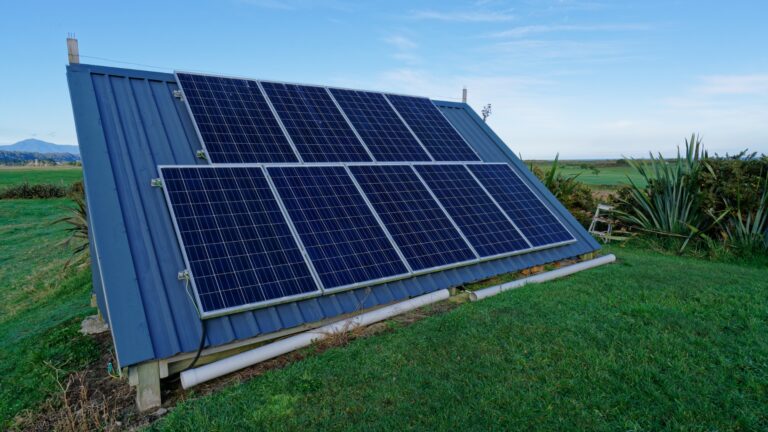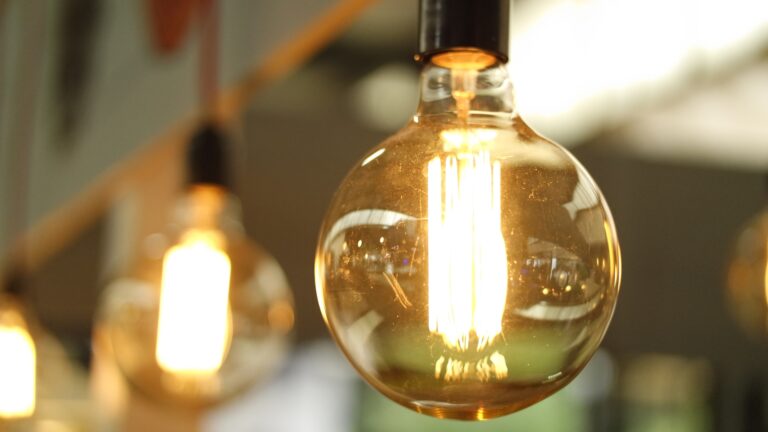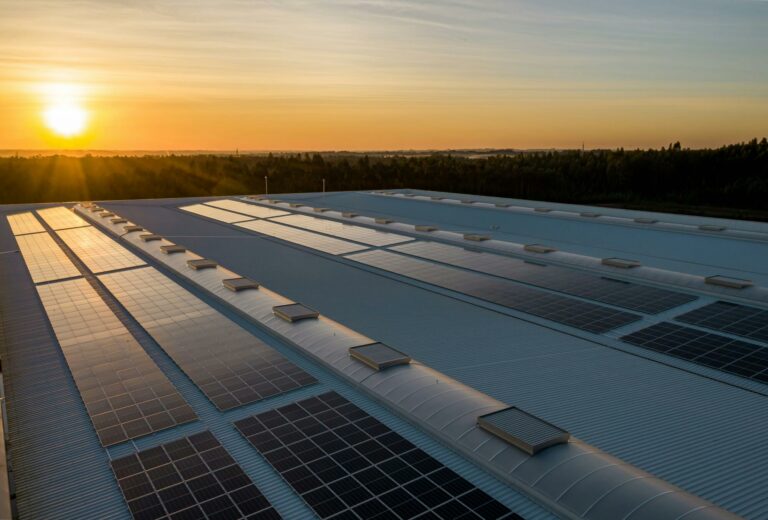In a world that is increasingly focused on renewable energy, solar panels are a frequent topic of conversation. But here’s something you might not know: Even without basking in direct sunlight all day, solar panels can still churn out significant amounts of energy. Isn’t that astounding?
So, you might be pondering the question, “do solar panels need direct sunlight?” as you contemplate transitioning your business to this eco-friendly power source. It’s a common question, particularly from those in regions where overcast days are the norm.
This article will look closer into this question and break down how solar panels work, their efficiency in various weather conditions, tips to maximize their output and the long-term benefits of investing in a solar energy system
Understanding How Solar Panels Work
Let’s start with the basics. Solar panels are remarkable pieces of technology that harness energy from the sun and convert it into electricity.
They consist of numerous small units called photovoltaic cells. These cells are the real heroes in the world of solar energy.
Photovoltaic cells work by absorbing sunlight. This absorption triggers a process where the energy in the light knocks electrons free from atoms, creating a flow of electricity. Each photovoltaic cell produces only a small amount of electricity, but when combined in a solar panel and a solar energy system, the result is a significant amount of power.
These systems don’t discriminate between different types of light. The energy comes from the photons in the light, not the heat.
As such, the light doesn’t necessarily need to be from the sun directly. It can be reflected or indirect light, and the system will still produce electricity.
Do Solar Panels Need Direct Sunlight?
Now, to the question at hand: “do solar panels need direct sunlight?” The straightforward answer is no, they don’t. While direct sunlight does provide the best conditions for solar panels to generate maximum power output, they can still function under less than ideal light conditions.
Solar panels generate electricity by absorbing the light that hits the photovoltaic cells, regardless of whether the light comes directly from the sun or from an overcast sky. Even on cloudy or rainy days, there’s still enough diffuse or indirect sunlight for solar panels to work.
Of course, the output on cloudy days won’t match the output on sunny days. But solar panels will continue to draw energy from the light that’s available.
The efficiency drop-off isn’t as severe as one might assume. Even on a day with full cloud cover, a solar panel can often produce up to 25% of its full capacity.
This makes solar panels a reliable source of energy in diverse climates, debunking the common misconception that they’re only effective in sunny regions. Regardless of the weather, a professionally installed solar energy system continues to work for you.
Performance of Solar Panels in Various Weather Conditions
Solar panels are hardy pieces of technology. Rain or shine, they’re out there, working to capture every bit of light they can. How they perform, however, does vary with the weather.
Direct sunlight offers the best conditions, with clear, sunny days allowing solar panels to produce maximum power output. But solar panels don’t go into hibernation when the sky is overcast.
As we mentioned before, even on a cloudy day, a solar panel can still produce up to 25% of its full capacity. This is because light still penetrates through the clouds and reaches the solar panels.
Winter presents a different kind of challenge. Shorter days mean fewer hours of sunlight, and snow can physically block light from reaching the panels. But interestingly, the cold temperatures can actually boost a solar panel’s efficiency.
This is because photovoltaic cells are more efficient in colder temperatures. So, when the snow is cleared, a winter day can still be a productive one for a solar energy system.
It’s also important to note that solar panels are built to withstand various weather conditions, from scorching heat to freezing cold, and even hailstorms. These panels go through rigorous testing to ensure they can endure extreme weather and continue to operate effectively.
Maximizing Efficiency of Solar Panels
While solar panels can function under a wide range of conditions, it’s worth considering how to maximize their efficiency. After all, a well-performing solar energy system is a smart investment for any business owner.
First, consider the placement of your solar panels. Positioning them in a spot with maximum sunlight exposure, typically a south-facing roof, can significantly boost their productivity.
Next, consider the angle of the panels. The angle that yields the most sunlight varies based on geographic location, but a professional solar installation company can help you find the ideal angle for your specific site.
Regular cleaning is also crucial. Dust, dirt, and other debris can reduce a panel’s efficiency by blocking light. A simple routine of cleaning can keep your panels operating at their best.
Lastly, professional maintenance is key. Solar panels are durable, but like any piece of technology, they can benefit from regular check-ups to ensure they’re performing optimally. This is where a solar installation company can really make a difference, ensuring your panels are in top shape and your investment continues to pay off.
Solar Power and Sustainability
Opting for solar energy is not just about cost savings. It’s also about committing to a greener future. By investing in solar, businesses can drastically cut their carbon footprints, making a tangible impact on the environment.
Solar energy is clean, renewable, and sustainable. Unlike fossil fuels, it doesn’t release harmful pollutants or greenhouse gases. This makes it a superior choice for businesses aiming for sustainable operations.
Furthermore, going green can significantly enhance a business’s reputation. Today’s consumers appreciate and support companies that make an effort to reduce their environmental impact. Thus, adopting solar energy is not just good for the planet, it’s also good for business.
The Importance of Professional Solar Panel Installation and Management
The transition to solar energy is a significant step. It requires careful planning, precise installation, and proactive maintenance. This is where a professional solar installation company plays a critical role.
An experienced solar installation company like Huston Solar has the expertise to ensure that your solar energy system is optimized for your specific needs. They help with each step of the process of a solar project, including:
- Initial site assessment
- Design and installation
- Regular maintenance and repair
Working with a professional also ensures that your system is compliant with all local regulations and that you can take full advantage of any available incentives. Additionally, their ongoing support means you can rest assured knowing your system will continue to operate efficiently for years to come.
Let’s Go Solar for Your Business
No matter if it’s a bright day in summer or a grey day in winter, solar panels can still do a great job. Putting money into solar energy can help lower your business costs.
It also shows that you care about being good to our planet. We’ve learned that the answer to the question “do solar panels need direct sunlight?” isn’t as simple as it seems.
Now, you’re ready for what comes next. Get in touch with us today and request a free quote from our team of experts. Choose solar and give your business power in a way that’s good for the earth!



